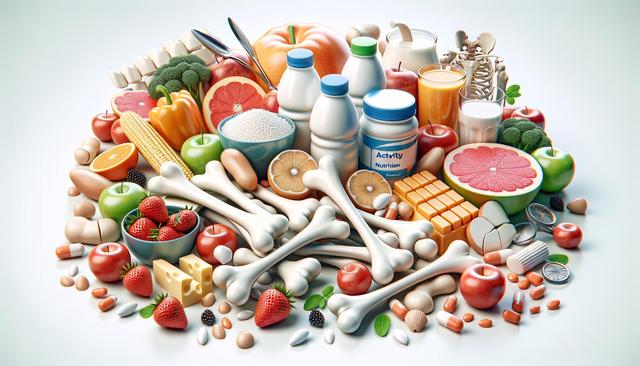Childhood and Adolescence: Building a Strong Foundation
During childhood and adolescence, bones are growing rapidly, making this stage critical for achieving optimal bone mass. Most bone development occurs before the age of 20, which is why proper nutrition and physical activity are essential. Children and teens should consume a diet rich in calcium and vitamin D, both of which contribute to bone strength and development. Dairy products, leafy greens, fortified cereals, and fish like salmon are excellent sources of these nutrients.
Encouraging weight-bearing exercises helps stimulate bone growth. Activities like:
- Running
- Jumping rope
- Team sports such as soccer or basketball
- Dancing
can all contribute to stronger bones. It’s also important to monitor screen time and promote outdoor play, which not only encourages physical activity but also increases exposure to sunlight, aiding in the natural production of vitamin D. Regular check-ups can help identify any growth issues or deficiencies early, allowing for timely intervention.
Early Adulthood: Maintaining Peak Bone Mass
In the 20s and 30s, the goal shifts from building bone to maintaining peak bone mass. At this point, bones have reached their maximum density, and maintaining them requires consistent effort. A balanced diet that includes sufficient calcium and vitamin D remains important. Adults should also focus on avoiding habits that can negatively affect bone health, such as smoking and excessive alcohol consumption.
Regular strength training and weight-bearing exercises continue to play a vital role. Consider incorporating:
- Resistance bands or free weights
- Yoga and Pilates
- Brisk walking or stair climbing
into a weekly routine. In addition to exercise, managing stress and getting enough sleep can also support overall health, including bone integrity. Women, in particular, should be mindful of menstrual health, as irregular or absent cycles can be a sign of hormonal imbalances that may interfere with bone density.
Midlife: Preventing Bone Loss
As individuals enter their 40s and 50s, bone density naturally starts to decline, especially in women after menopause due to hormonal changes. This stage is crucial for taking proactive steps to slow bone loss. Continuing a nutrient-rich diet and regular exercise is essential, but additional strategies may be needed. Bone density screenings can help monitor changes and assess risk for osteoporosis.
People in midlife should focus on:
- Maintaining a healthy weight
- Ensuring proper intake of calcium and vitamin D through food or supplements
- Reducing caffeine intake, which can interfere with calcium absorption
- Exploring strength training programs tailored to joint and bone health
Additionally, consulting healthcare providers about medications or conditions that may affect bone health is advisable. Some individuals may need to consider bone-supporting medications if they are at high risk of fractures or have already experienced bone loss.
Older Adults: Minimizing Risk of Falls and Fractures
In the senior years, the focus shifts to preventing falls and minimizing the risk of fractures. Bone density continues to decrease with age, and falls can have more serious consequences. Ensuring the home environment is safe—such as removing tripping hazards and installing handrails in key areas—can reduce the risk of injury. Balance and flexibility exercises, such as tai chi or gentle yoga, can help improve stability.
Diet remains a cornerstone of bone health. Older adults often face challenges like reduced appetite or difficulty absorbing nutrients, so it may be necessary to discuss supplements with a healthcare provider. Key strategies include:
- Regular bone density check-ups
- Consistent weight-bearing and resistance exercises
- Monitoring medications that may affect bone health
- Staying hydrated and maintaining overall physical health
In addition to physical strategies, staying socially active and mentally engaged can contribute to overall well-being, which in turn supports healthier bones through increased physical activity and better lifestyle habits.
Special Considerations for Bone Health Across Life Stages
While age plays a significant role in bone health, other factors such as genetics, chronic illnesses, and lifestyle choices also contribute. Individuals with conditions like rheumatoid arthritis, celiac disease, or thyroid disorders may face higher risks of bone loss and should work closely with healthcare professionals to manage their bone health effectively.
Other important considerations include:
- Monitoring hormonal levels, especially during menopause and andropause
- Being cautious with medications like corticosteroids, which can weaken bones
- Staying informed about family history of osteoporosis or fractures
Regardless of age, making informed choices about nutrition, physical activity, and health screenings can have a lasting impact on bone strength. Personalized care, based on individual risk factors and lifestyle, ensures that bone health remains a priority throughout life.


